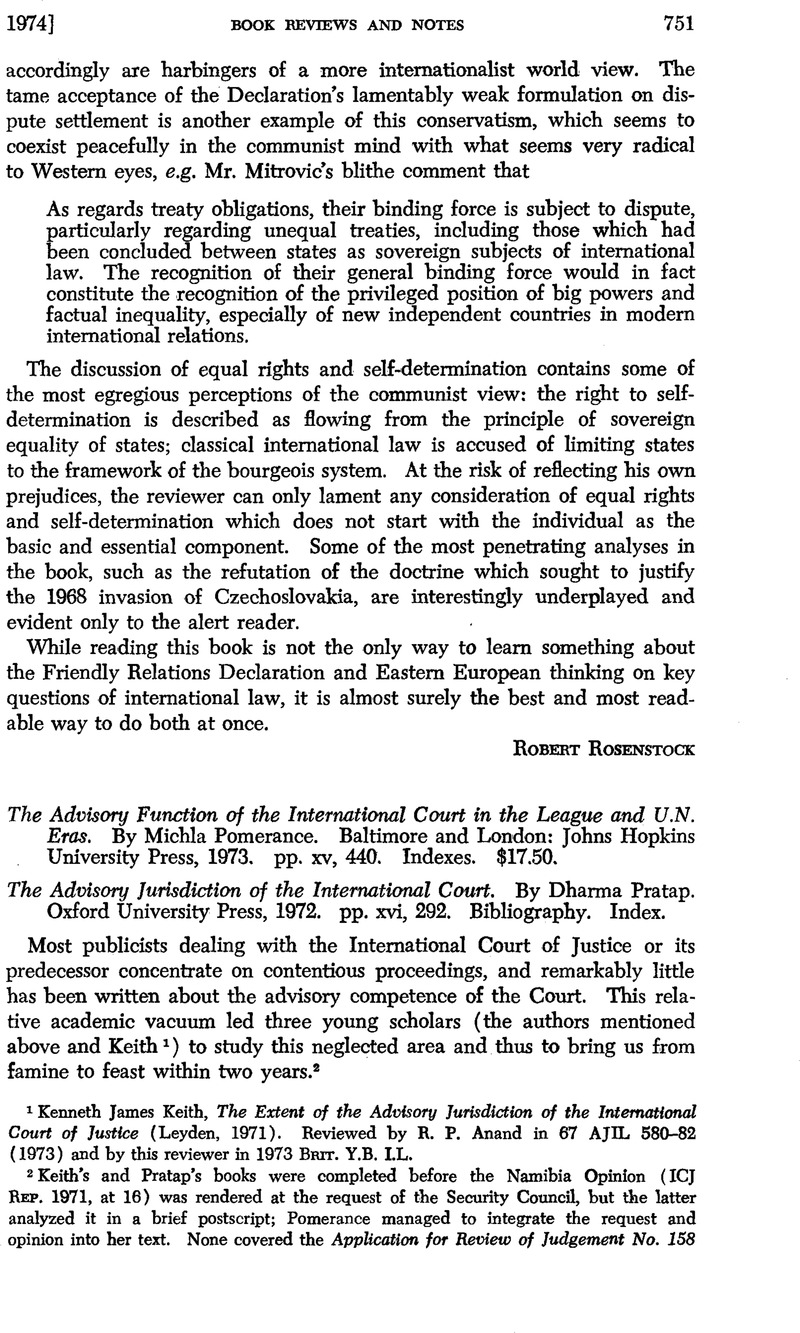No CrossRef data available.
Article contents
The Advisory Function of the International Court in the League and U.N. Eras. By Michla Pomerance. Baltimore and London: Johns Hopkins University Press, 1973. Pp. xv,440 Indexes. $17.50. - The Advisory Jurisdiction of the International Court. By Dharma Pratap. Oxford University Press, 1973. Pp. xvi, 292 Bibliography. Index.
Published online by Cambridge University Press: 28 March 2017
Abstract

- Type
- Book Reviews and Notes
- Information
- Copyright
- Copyright © American Society of International Law 1974
References
1 Keith, Kenneth James, The Extent of the Advisory Jurisdiction of the International Court of Justice (Leyden, 1971)Google Scholar. Reviewed by Anand, R. P. in 67 AJEL 580–82 (1973)Google Scholar and by this reviewer in 1973 BRIT. Y.B. I.L.
2 Keith’s and Pratap’s books were completed before the Namibia Opinion (ICJ Rep. 1971, at 16) was rendered at the request of the Security Council, but the latter analyzed it in a brief postscript; Pomerance managed to integrate the request and opinion into her text. None covered the Application for Review of Judgement No. 158 of the United Nations Administrative Tribunal (ICJ RepS. 1973). All the studies were completed before the 1972 revision of the Rules, and therefore could not comment on the slight changes relating to advisory proceedings.
3 E.g., the suggestion (p. 76) that the International Bank for Reconstruction and Development would have to amend its Articles of Agreement in order to address requests to the Court; or the most superficial discussion (pp. 80–81) on why certain specialized agencies have not requested advisory opinions. The unique problems concerning the special status of the International Atomic Energy Agency are barely and not quite accurately alluded to (p. 79, fn. 3).
4 E.g., the flat statement (pp. 71–72), that an advisory opinion rendered pursuant to Article 11 of the Statute of the UN Administrative Tribunal is not binding; or the suggestion (p. 194) that Article XII of the Statute of the ILO Administrative Tribunal permits review of a failure to exercise jurisdiction.


